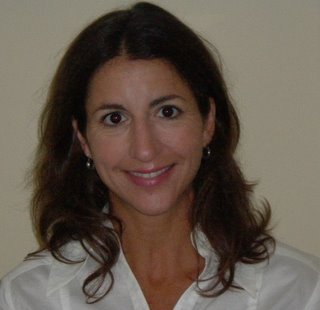
Preserve Access to the Courts
by Amber Sexton
MONTGOMERY, IL.--When I was 15 years old, I became paralyzed from the waist down. I was a rear passenger in my mother’s car, when it was involved in a frontal collision. I was wearing a lap-only seatbelt, the only restraining device available to me, when the crash forced my body forward and the burden of the lap belt nearly cut my body in half. What we later learned was that since 1966, auto companies knew that rear lap belts were unsafe yet continued to put them in cars, like my mother’s.
I am now in a wheelchair. In order for me to rebuild my life, my family went to court and I received compensation for my injury that provided me the opportunity to live in an accessible home, pay for uninsured medical expenses, and go to college. I was able to complete college and find gainful employment. And I am now proud to say that this spring, I was crowned Ms. Wheelchair Illinois, a feat I never could have accomplished without our court case, which helped me recover and set me on a new road in life.
This month, I will go to Little Rock to compete in a pageant to become Ms. Wheelchair America. At Little Rock, I will stress the importance of providing injured people with the resources needed to improve their quality of life.
It is disheartening, however, to know that there are forces in Illinois that are working against this goal. Large corporations are funding billboards and newspaper advertisements attacking those who use the court system. These special interests are pushing for laws that would make it more difficult for sick and injured people to obtain just compensation.
Making it harder to bring legitimate lawsuits like mine would not only be devastating to those who need fair compensation to rebuild their lives after a catastrophic injury, it would also limit accountability for those responsible for causing damage and harm.
Take my case, for instance. The automobile industry has been aware that lap belts may result in abdominal injuries since the 1960s. For that reason, most cars are equipped with three-point seatbelts that include shoulder straps, which are more effective in preventing injuries. The manufacturer ignored these basic safety precautions in order to save $12 per car.
Today, three-point belts are required in all rear seating positions. The change was made partly because of lawsuits like mine.
Over the last several years, we have witnessed a disgraceful effort to subvert Illinois’ civil justice system with misleading rhetoric about "out of control" judges and juries, resulting in cruel proposals that would cheat the sick and injured. They would also allow corporations to escape financial responsibility for causing injuries and death.
The civil justice system gave me an opportunity to succeed in life. It is a system that empowered me to help others with disabilities and put me on a path to becoming the next Ms. Wheelchair America. Access to this system should be preserved and expanded so that corporations that commit wrongdoing pay for the harm and damage they cause.
-----------------------------------------------------------------
Sexton, age 26, is Ms. Wheelchair Illinois.
